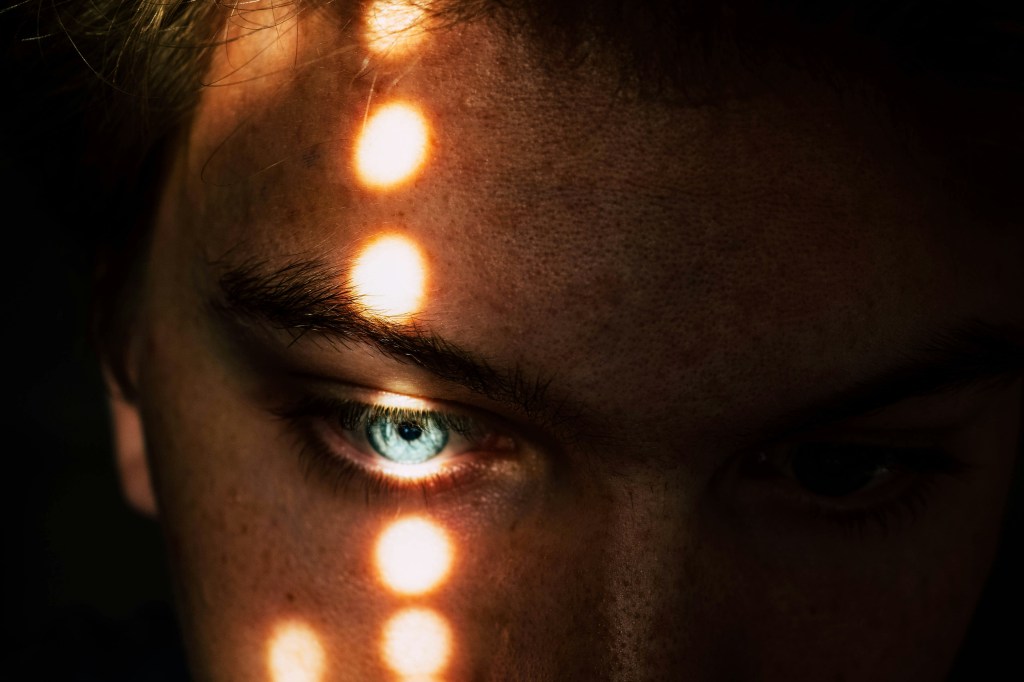
The experimentation protocol has been the most difficult thing to get right, specifically the initial briefing. How to explain to a participant what will happen when you strip them of their language? It might be easier if their assumptions about human language weren’t so ill conceived.
We start by debunking their ideas about the relationship between linguistic expression and sensory data. The former, they inevitably believe, is a tool for communicating the latter.
‘Not quite,’ we correct them. ‘Language restricts the information your senses gather. It filters, constrains, distorts.’ We guide them through a task designed to help them experience the limiting quality of linguistic structure: Look without describing (even inwardly) what you see.
The task helps participants grasp the constrictive function of language, but it unhelpfully introduces a new bias. Now participants anticipate that being stripped of language will produce experiences of ‘oneness,’ nonduality, a world without distinctions, a blurring of boundaries.
We’ve not yet been able to prepare them for what really happens.
Without human language, the world sharpens. It comes into greater focus. Objects don’t blur, they individuate. They resonate each to their own distinct harmonic, the world a symphony, inestimably complex, unyieldingly singular.
Or so we believe. We have no corroborating reports. The participants, returned to their language, lack the capacity to describe the world without it. The experiment renders them bewildered and speechless, leaving as record only the ineffable yearning in their tear-glistened eyes.
Would you like to know more about this story? Sign up to the Grammar for Dreamers newsletter to get monthly updates on the ideas that inspire my work.